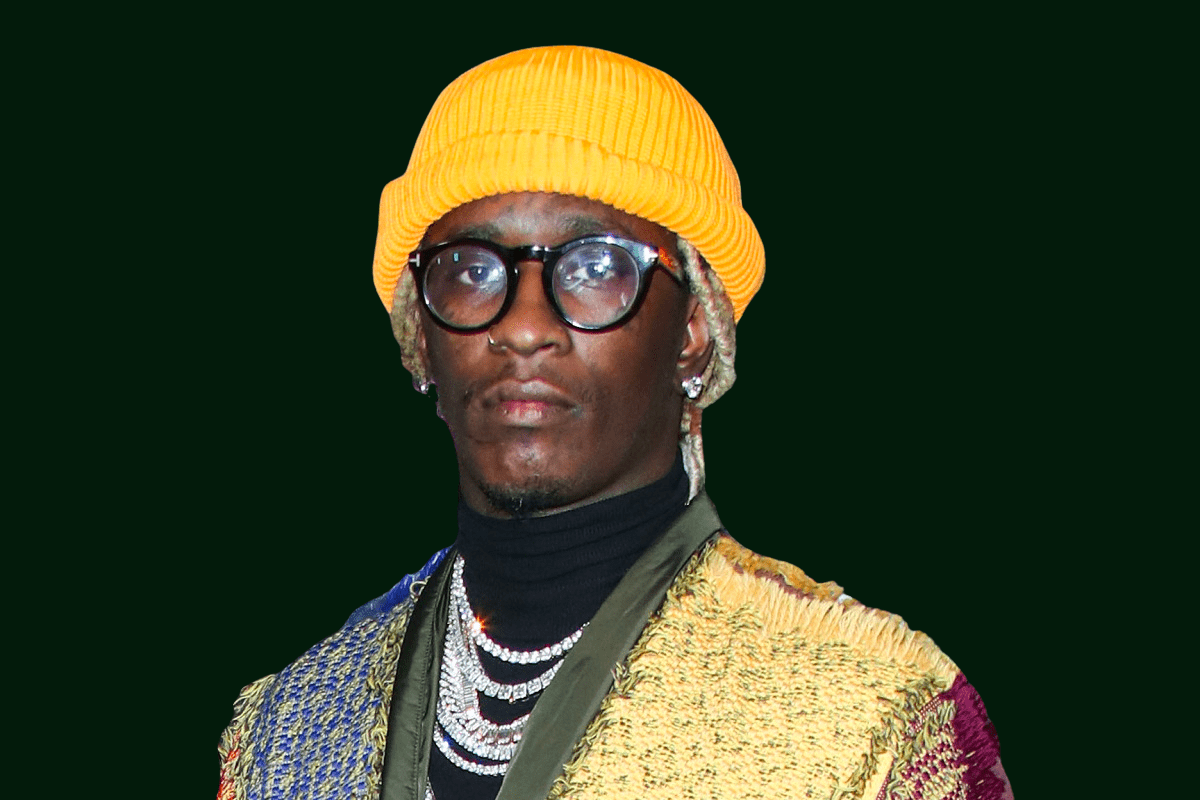A lot of commotion has been made about law enforcement using rappers’ lyrics in their cases as evidence.
A former FBI Unit Chief shared his beliefs on the strategy and if it poses an unlawful or unethical weaponization of art to the creative imagination of the artists.
Music executives like 300 Entertainment co-founder, Kevin Liles, and Atlantic Records COO, Julie Greenwald, are also up in arms, distributing a petition to their colleagues against this practice, called “Rap Music on Trial: A Petition to Protect Black Art.”
The letter from the executive reads in part, according to Forbes, “As you may know, currently in Georgia, multiple artists belonging to Young Stoner Life Records – including celebrated artists like Young Thug and Gunna – are facing more than 50 allegations, including RICO charges which claim the record label is a criminal gang. The allegations heavily rely on the artists’ lyrics that prosecutors claim are ‘overt evidence of conspiracy.'”
Rapper Bobby Shmurda, who placed his name on the petition, said, “Weaponizing creative expression against artists is obviously wrong.”
“But what gets us so upset is what’s happening to Young Thug, Gunna, and YSL is just the most high-profile case,” the Brooklyn native said. “In courtrooms across America, Black creativity and artistry is being criminalized. With increasing and troubling frequency, prosecutors are attempting to use rap lyrics as confessions, just like they’re doing in this case.”
Mark Rossini, who used to work for the FBI, said he also is cautiously against the idea that art can be used to criminalize artists.
“Art should not be repressed or oppressed. Artists have sought to tell us about themselves or to show us the world we live in,” he said. “Their messages have been personal and political. We see Van Gogh laying bare his depression and pain, and also the beauty of the world around him.”
For Rossini, rap and other forms of Hip-Hop can be included in this conversation.
He continued, “Art is not just sculptures, paintings, and cartoons. It is music, poems, and lyrics. Rap and Hip-Hop send us a message of the frustration of our youth. In particular those in the African American and minority communities.”
“In Fulton County, several rap artists have been arrested and charged in a 58-count RICO case. What has gotten press coverage is that the prosecutors are using the rappers’ lyrics against them in an evidentiary manner,” he continued.
“This in turn has caused other artists and music industry executives to sound the proverbial alarm that African American rappers are being labeled criminals for expressing themselves, and the potential for all African American artists to be lumped together and seen by society as nothing more than ‘thugs’ just for being a rap artist.”
Rossini shared, “I understand their fears and frustrations, in particular during the polarizing times we are living in. It seems that each day there are news reports of Neo-N### and White Supremacist groups carrying out or planning to carry out violent acts against minorities. The mass murders in Uvalde, Texas, and Buffalo, New York are Exhibit A of this reality. All that said, the prosecutors in Fulton County have not brought indictments against the arrested individuals for their lyrics. They have been arrested for their violent and criminal acts.”
AllHipHop.com has reported that Fulton County’s D.A. is not only clamoring through lyrics but also pulling from relationships to build this case and paint of picture of criminality through Young Thug and Gunna’s music.
Rossini says there is an objective that is at play.
“The objective (and challenge for the prosecutors) is to use the rapper’s own words to show a jury the direct correlation between the lyrics and the criminal act(s). I do not believe that rappers or any other artists have anything to fear by continuing to express themselves and send us, the listener, a message.
“No one is ‘weaponizing’ black music as several industry executives have claimed. There is a clear distinction between an artist, Black or White, expressing themselves, and a prosecutor being able to show a jury the direct link between an artist’s lyrics and their criminal acts or their overt acts done in furtherance of committing said criminal acts. All this activity can be strung together to determine that an individual or individuals are engaged in a criminal enterprise which is at the heart of a RICO charge. As always, let the jury decide.”
It will be months before the YSL gang case goes to trial. Currently, the date is set for Jan 9th, 2023. Both artists have been denied bond (twice) and remain incarcerated.

